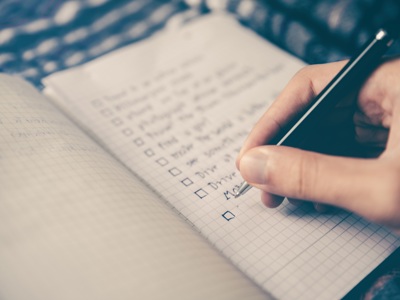Job ready checklist
Before you start to look for work, there are some things that you could be doing to get yourself prepared.
Have a look at our checklist guide below, it provides a step by step guide to being prepared for work, including links to additional support.
If you need some support with any of the steps below, you can call Futures on 0800 917 9419 to book an appointment, or book online via the link below.
If you are aged 16-19 (up to 25 if you have an EHCP) you can access additional support from the Connexions service.

1. Set up bank account
You will need a bank account in order to get paid by your employer.
You can find out how to set up a bank account on the Citizens Advice website.
2. Get a phone/phone number
You will need a phone number in order to be in contact with potential employers.
You can get advice on choosing a mobile phone contract on the Citizens Advice website.
3. Set up an email address
You will need an email address in order to communicate with potential employers.
You can find out how to set up an email address via Age UK's guide.
4. Make a CV
A CV (Curriculum Vitae) is your first chance to promote yourself. Think about your skills and the things you have done before. A good CV might get you a job interview.
You usually need a CV to apply for a job or to give to an employer you’d like to work for.
You can get help making a CV on the National Careers Service website.
5. Get some careers advice
Whether you know where you’re headed in the future or not, knowing the work and study choices available to you is a great place to start.
The National Careers Service can help you make career decisions throughout your life. From deciding your education route, planning a career change at any age or getting the job that is right for you, find out more on their website.
6. Start job searching
Now you've completed all the steps above, you're ready to start searching for jobs.
You can explore the different ways there are to look for a new job and choose which ways suit you best on the National Careers Service website.
7. Write a covering letter
A cover letter introduces you to an employer and asks them to think about your application.
It’s a short letter, usually 3 to 5 paragraphs long. We recommend that you read the National Careers Service web page on How to write a cover letter.
8. Complete job application forms
An application form is an official way to apply for a job or training course with a company.
You can use an application form to show why you would be a good choice for the course or job.
You can get advice on application forms on the National Careers Service's Application form advice web page.
9. Prepare for a job interview
An interview is a conversation between you and an employer to see if you're the right fit for a role.
It's important to make sure you know what to expect from an interview and to prepare as best as you can.
Find out more on the National Careers Service's Interview Tips web page.
10. Do some volunteering
Volunteering is a great way to gain confidence, learn new skills and make a difference.
Visit our volunteering page to see what's on offer.
